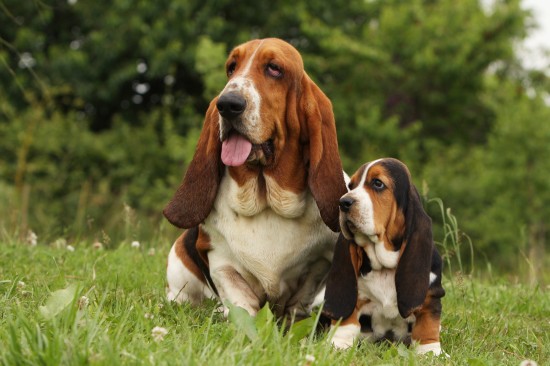
Coping with a dog that is considered to be disobedient or has a high level of excitability is a challenging task for any pet owner. It is important to understand that most puppies will exhibit these particular behaviors in their first few months of life, but that the behaviors will typically diminish once they have been trained or reach at least six months of age. If the issues of disobedience and excitability are not addressed early in the dog's life, they will continue and will prove to be a heavy burden to not only an owner, but to all of the individuals that come in contact with the pet. Undesirable behaviors such as lack of attention to commands, continuous barking, and jumping on people will continue into adulthood and will prove to be quite a burden.
If a dog is displaying a general level of disobedience or has a high level of excitability, it is typically related to improper training and conditioning. However, there is a rare medical condition known as "Hyperkinesis" that could be to blame. This is often referred to as "Attention Deficit Hyperactivity Disorder" or "ADHD". While it is not at all uncommon for a veterinarian to suspect this medical condition, it is not often diagnosed. If you have a dog that seems to be unruly, does not respond appropriately to commands during training and conditioning, and engage in behaviors on a repetitive nature, it is advised that you consult your dog's doctor so that an evaluation may be performed. If this medical condition is to blame, the doctor will likely prescribe amphetamines in order to create a sense of calm in the pet.
If you are coping with disobedience and excitability in your dog, and it has been established that there is no underlying medical condition, it is important to immediately starting training and conditioning lessons with the animal. It is important to ensure that the pet is permitted to exercise regularly and in a strenuous manner to start with because this will have a calming effect on the animal. When training the dog, be certain to avoid using rewards in order to calm the pet down. This will only reinforce the behavior. You must give stern and productive commands that will catch the attention of the dog without sounding too harsh. When the animal exhibits the behavior that you desire, it is important to ensure that rewards are given.
Positive reinforcement is the key to ensuring that the undesirable behaviors that your dog exhibits turns into acceptable behaviors. It is important to avoid engaging in tactics such as isolating the pet, using collars that choke or release an electrical current, and becoming too harsh in training. It is important to learn as much as you can about the nature and character of the breed that you own and ensuring that when you train the dog, you use techniques and strategies that play to the nature and character of the breed. Dogs that are trained improperly may exhibit signs of rebellion. However, if you take the steps that are necessary to train your dog in a positive and productive manner, you will find that the undesirable traits of disobedience and excitability are quickly eliminated.
 Some Common Canine Care And Behaviour Myths
Some Common Canin
Some Common Canine Care And Behaviour Myths
Some Common Canin
 All About Laperm Cats In The Uk, And What Is Required For Pedigree Registration
All About Laperm
All About Laperm Cats In The Uk, And What Is Required For Pedigree Registration
All About Laperm
 High Profile Dog Breeds And Their Health
High Profile Dog
High Profile Dog Breeds And Their Health
High Profile Dog
 Third Party Liability Insurance For Dogs-avoiding The Loopholes
Third Party Liabi
Third Party Liability Insurance For Dogs-avoiding The Loopholes
Third Party Liabi
 Give Safety to Your Pet with Keeping at Dog Kennels in South Yorkshire
Give Safety to Your Pet with Keeping at Dog Kennels in Sou
Give Safety to Your Pet with Keeping at Dog Kennels in South Yorkshire
Give Safety to Your Pet with Keeping at Dog Kennels in Sou
Copyright © 2005-2016 Pet Information All Rights Reserved
Contact us: www162date@outlook.com